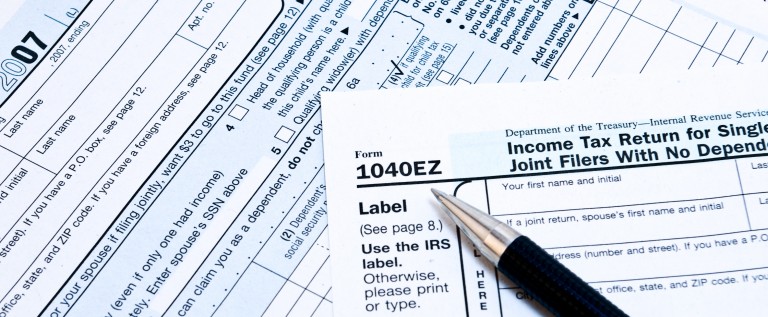Smart tax moves for the holidays

As if the holidays aren’t busy enough, here are a few more critical things to add to your list. Fitting in some smart tax planning before year-end could save you and your family much pain and money later. Because of the impending changes in US tax law brought on by the fiscal cliff, tax planning this year is even more important.
Tax Cliff
The fiscal cliff has been in the news incessantly, so much so that the Wall Street Journal website has a separate section dedicated to it. If I were a betting woman, I would bet that there is a 99.9% chance that most people’s taxes will go up next year. If the fiscal cliff was left unresolved, all the expiring tax breaks would unleash a tax increase of $500 billion on US taxpayers. How the fiscal cliff will actually be resolved remains to be seen. In the meantime, here are some things that you can do before 2013 to prepare yourself.
- Read this report
The Tax Policy Center – a joint project of the Urban Institute and the Brookings Institution – issued a study summarizing how the fiscal cliff would play out for different tax payers. I recommend reading this report to understand how the fiscal cliff would impact you. To summarize a couple of key points in the report:
- For most households, the two biggest increases would be the expiration of the temporary cut in Social Security taxes and the expiration of the Bush-era 2001/2003 income tax cuts
- Upper middle-income households would be particularly affected by the expiration of the Alternative Minimum Tax (AMT) patch. Recall that the AMT formula does not adjust for inflation. Over the years, millions of even middle-income households have found themselves entangled in AMT, which was originally formulated to ensure the wealthy paid their taxes.
- Take capital gains in 2012
The capital gains tax rate is 15% for most taxpayers in 2012. This will increase to 20% on January 1st, 2013. The smart money has already cleaned up their investment portfolios. Talk with your financial advisor about which stocks you want to unload before year-end to take advantage of the lower capital gains rate in 2012.
Incidentally, those in the higher income bracket will also face an additional 3.8% Medicare tax on net investment income in 2013. Single filers making more than $200,000 and married joint filers with combined incomes of over $250,000 – take note.
- Accelerate income into 2012 if you can
Some savvy sports professionals like BJ Upton recently inked contracts that moved part of their compensation to 2012, with the belief that tax rates will go up from 2013. Some CEOs are reportedly trying to do the same. No doubt, some small business owners are considering this too.
If you have the ability to accelerate your income into this year, definitely consult your accountant about this. For instance, you may be able to negotiate that your bonus be paid out in 2012. Or if you are starting a new job in 2013, you might ask if your signing bonus can be paid in 2012. You can avoid the new 0.9% Medicare tax that takes effect
in 2013 as part of the Affordable Care Act.However, not all of us can move our income. For example, most companies are required by accounting standards to pay wages in the same time period during which the work was performed.
- Plan discretionary medical expenses
For 2012, medical expenses must exceed 7.5% of adjusted gross income (AGI) in order to be deductible. For 2013, the threshold is even higher – medical expenses must be more than 10% of AGI. You may want to plan your discretionary medical expenses carefully, such as prescription glasses, contact lenses, and certain elective dental procedures. For example, if you are already near the 7.5% threshold this year, you may want to accelerate some discretionary medical expenses into 2012, so that you can take the deduction.Alternatively, if you foresee major medical expenses in 2013, such as the birth of a child, you may want to postpone discretionary medical expenses until next year to try to reach the 10% threshold. Either way, do some planning with your family to determine your best course of action. And check the IRS website to see if your procedure qualifies as a medical expense.
Don’t Forget…
- Max out your 401k contributions
This article will not be complete if I didn’t remind you of my favorite year-end tax move – maximize your 401k contributions. These are taken from your pre-tax wages, and do not incur a tax bill until you withdraw them. 401k contributions are a great way to reduce your taxable income. In 2012, you can contribute a maximum of $17,000.
Happy Holidays!
Yes, the holidays are a busy time of the year. However, taking some time to discuss these tax matters with your accountant and family this year could save you a lot of hassle next year. Good luck, and happy holidays!







